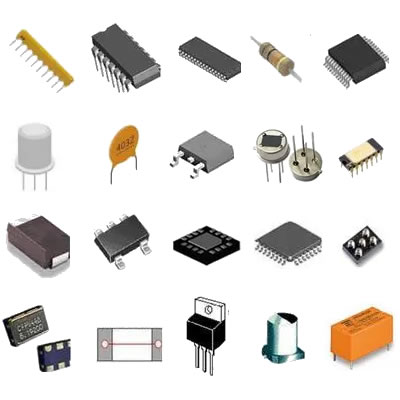How big is the market size for resistors?
Market Size Analysis of Resistors

Introduction
Resistors are one of the most basic components in electronic circuits, with the main function of limiting the flow of current and providing a stable resistance value. Resistors play a crucial role in electronic devices and are widely used in various electronic products such as smartphones, computers, and household appliances. With the continuous advancement of technology and the increasing demand for electronic products, the resistor market is also expanding. This article aims to analyze the market size of resistors and their development trends, providing valuable insights for industry participants.
Overview of the Resistor Market
1. Classification of Resistors
Resistors can be classified into various categories based on their characteristics and applications, including:
Fixed Resistors: Provide a constant resistance value and are widely used in various circuits.
Variable Resistors: The resistance value can be adjusted as needed, commonly used in volume control and dimming circuits.
Special Resistors: Including thermistors (NTC and PTC), photoresistors, etc., with specific functions widely used in temperature and light detection fields.
2. Applications of Resistors
Resistors have a wide range of applications, including:
Consumer Electronics: Such as smartphones, tablets, TVs, etc., resistors are used in these devices for signal processing and power management.
Automotive Electronics: With the trend towards automotive electrification, resistors play an important role in automotive control systems, sensors, and entertainment systems.
Industrial Equipment: In industrial automation and control systems, resistors are used for signal regulation and current limitation.
Communication Equipment: Resistors are used in network devices and communication systems for signal transmission and processing.
Medical Devices: In medical instruments, resistors are used for monitoring and controlling current to ensure the safety and reliability of the equipment.
Current Status of the Resistor Market
1. Global Resistor Market Size
According to market research data, the global resistor market size reached approximately XX billion dollars in 2023 and is expected to continue growing in the coming years. The main markets include North America, Europe, and the Asia-Pacific region, with the Asia-Pacific region becoming the main growth area in the resistor market due to the rapid growth in demand for electronic products.
2. Major Resistor Manufacturers and Their Market Share
In the resistor market, major manufacturers include Murata Manufacturing, Vishay, TE Connectivity, etc. These companies occupy a high market share due to their technological advantages and market strategies.
Murata Manufacturing: As a leading global electronic component manufacturer, Murata has strong R&D capabilities and market influence in the field of resistors.
Vishay: Known for its extensive product line and high-quality resistors, Vishay holds a significant position in multiple application areas.
TE Connectivity: Focused on connectivity and sensor technology, TE Connectivity's resistor products perform well in the automotive and industrial markets.
Drivers of Resistor Market Growth
1. Growth in Demand for Electronic Products
With the popularity of consumer electronic products such as smartphones, tablets, the demand for resistors is also increasing. Additionally, the rise of Internet of Things (IoT) devices further drives the demand for resistors. More and more devices need to connect to the internet, and resistors play a crucial role in these devices.
2. Trend towards Automotive Electronics
The development of electric vehicles and autonomous driving technology is driving the trend towards automotive electrification. Resistors play an important role in automotive control systems, sensors, and power management, and are expected to continue driving the growth of the resistor market in the coming years.
3. Industrial Automation and Smart Manufacturing
The advent of Industry 4.0 has made industrial automation and smart manufacturing trends. Resistors play an important role in automation equipment and control systems. With the emphasis on smart manufacturing by enterprises, the demand for resistors will continue to grow.
Challenges Facing the Resistor Market
Despite the promising prospects of the resistor market, it also faces some challenges:
1. Fluctuations in Raw Material Prices
Resistor production relies on various raw materials such as metal oxides and ceramic materials. Fluctuations in raw material prices may affect the production cost of resistors, thereby impacting market prices.
2. Threat of Substitutes due to Technological Advancements
With continuous technological advancements, new electronic components and materials are emerging, which may pose a threat of substitution to traditional resistors. Companies need to innovate constantly to maintain competitiveness.
3. Environmental Regulations and Sustainable Development Requirements
With the global emphasis on environmental protection and sustainable development, resistor manufacturers need to comply with relevant regulations to reduce environmental impact during the production process. This may increase production costs and impact market competition.
Future Trends in the Resistor Market
1. Impact of Emerging Technologies on the Resistor Market
The proliferation of emerging technologies will have a profound impact on the resistor market. For example, the widespread adoption of 5G technology will drive the demand for high-performance resistors, and the application of artificial intelligence and machine learning will promote the use of resistors in smart devices.
2. Market Forecast
According to market research agencies' forecasts, the resistor market size is expected to continue growing at an annual average growth rate of XX% in the next five years. The Asia-Pacific region will be a major growth area, especially in the consumer electronics and automotive electronics sectors.
Conclusion
The resistor market shows promising development prospects driven by factors such as the growth in demand for electronic products, automotive electrification, and industrial automation. However, market participants also need to pay attention to fluctuations in raw material prices, the threat of substitutes due to technological advancements, and the impact of environmental regulations. To maintain a competitive edge in the market, companies should innovate continuously, improve product quality, and enhance technological capabilities.
References
- Relevant market research reports
- Industry analysis articles
- Company annual reports and financial data
Through in-depth analysis of the market size of resistors, this article provides industry participants with a clear market landscape, helping them better grasp market opportunities and address challenges. In the future, with continuous technological advancements and changes in market demand, the resistor market will continue to develop and is worth paying attention to.
Market Size Analysis of Resistors

Introduction
Resistors are one of the most basic components in electronic circuits, with the main function of limiting the flow of current and providing a stable resistance value. Resistors play a crucial role in electronic devices and are widely used in various electronic products such as smartphones, computers, and household appliances. With the continuous advancement of technology and the increasing demand for electronic products, the resistor market is also expanding. This article aims to analyze the market size of resistors and their development trends, providing valuable insights for industry participants.
Overview of the Resistor Market
1. Classification of Resistors
Resistors can be classified into various categories based on their characteristics and applications, including:
Fixed Resistors: Provide a constant resistance value and are widely used in various circuits.
Variable Resistors: The resistance value can be adjusted as needed, commonly used in volume control and dimming circuits.
Special Resistors: Including thermistors (NTC and PTC), photoresistors, etc., with specific functions widely used in temperature and light detection fields.
2. Applications of Resistors
Resistors have a wide range of applications, including:
Consumer Electronics: Such as smartphones, tablets, TVs, etc., resistors are used in these devices for signal processing and power management.
Automotive Electronics: With the trend towards automotive electrification, resistors play an important role in automotive control systems, sensors, and entertainment systems.
Industrial Equipment: In industrial automation and control systems, resistors are used for signal regulation and current limitation.
Communication Equipment: Resistors are used in network devices and communication systems for signal transmission and processing.
Medical Devices: In medical instruments, resistors are used for monitoring and controlling current to ensure the safety and reliability of the equipment.
Current Status of the Resistor Market
1. Global Resistor Market Size
According to market research data, the global resistor market size reached approximately XX billion dollars in 2023 and is expected to continue growing in the coming years. The main markets include North America, Europe, and the Asia-Pacific region, with the Asia-Pacific region becoming the main growth area in the resistor market due to the rapid growth in demand for electronic products.
2. Major Resistor Manufacturers and Their Market Share
In the resistor market, major manufacturers include Murata Manufacturing, Vishay, TE Connectivity, etc. These companies occupy a high market share due to their technological advantages and market strategies.
Murata Manufacturing: As a leading global electronic component manufacturer, Murata has strong R&D capabilities and market influence in the field of resistors.
Vishay: Known for its extensive product line and high-quality resistors, Vishay holds a significant position in multiple application areas.
TE Connectivity: Focused on connectivity and sensor technology, TE Connectivity's resistor products perform well in the automotive and industrial markets.
Drivers of Resistor Market Growth
1. Growth in Demand for Electronic Products
With the popularity of consumer electronic products such as smartphones, tablets, the demand for resistors is also increasing. Additionally, the rise of Internet of Things (IoT) devices further drives the demand for resistors. More and more devices need to connect to the internet, and resistors play a crucial role in these devices.
2. Trend towards Automotive Electronics
The development of electric vehicles and autonomous driving technology is driving the trend towards automotive electrification. Resistors play an important role in automotive control systems, sensors, and power management, and are expected to continue driving the growth of the resistor market in the coming years.
3. Industrial Automation and Smart Manufacturing
The advent of Industry 4.0 has made industrial automation and smart manufacturing trends. Resistors play an important role in automation equipment and control systems. With the emphasis on smart manufacturing by enterprises, the demand for resistors will continue to grow.
Challenges Facing the Resistor Market
Despite the promising prospects of the resistor market, it also faces some challenges:
1. Fluctuations in Raw Material Prices
Resistor production relies on various raw materials such as metal oxides and ceramic materials. Fluctuations in raw material prices may affect the production cost of resistors, thereby impacting market prices.
2. Threat of Substitutes due to Technological Advancements
With continuous technological advancements, new electronic components and materials are emerging, which may pose a threat of substitution to traditional resistors. Companies need to innovate constantly to maintain competitiveness.
3. Environmental Regulations and Sustainable Development Requirements
With the global emphasis on environmental protection and sustainable development, resistor manufacturers need to comply with relevant regulations to reduce environmental impact during the production process. This may increase production costs and impact market competition.
Future Trends in the Resistor Market
1. Impact of Emerging Technologies on the Resistor Market
The proliferation of emerging technologies will have a profound impact on the resistor market. For example, the widespread adoption of 5G technology will drive the demand for high-performance resistors, and the application of artificial intelligence and machine learning will promote the use of resistors in smart devices.
2. Market Forecast
According to market research agencies' forecasts, the resistor market size is expected to continue growing at an annual average growth rate of XX% in the next five years. The Asia-Pacific region will be a major growth area, especially in the consumer electronics and automotive electronics sectors.
Conclusion
The resistor market shows promising development prospects driven by factors such as the growth in demand for electronic products, automotive electrification, and industrial automation. However, market participants also need to pay attention to fluctuations in raw material prices, the threat of substitutes due to technological advancements, and the impact of environmental regulations. To maintain a competitive edge in the market, companies should innovate continuously, improve product quality, and enhance technological capabilities.
References
- Relevant market research reports
- Industry analysis articles
- Company annual reports and financial data
Through in-depth analysis of the market size of resistors, this article provides industry participants with a clear market landscape, helping them better grasp market opportunities and address challenges. In the future, with continuous technological advancements and changes in market demand, the resistor market will continue to develop and is worth paying attention to.






